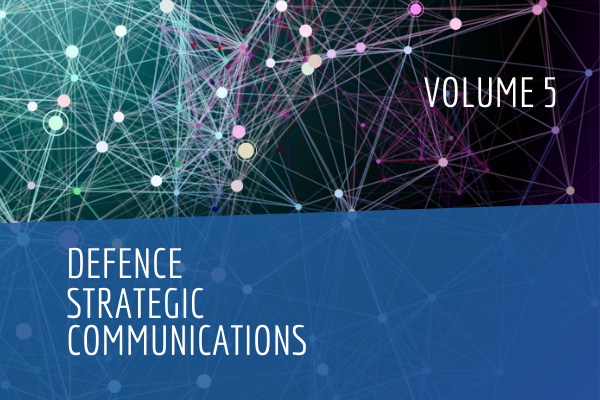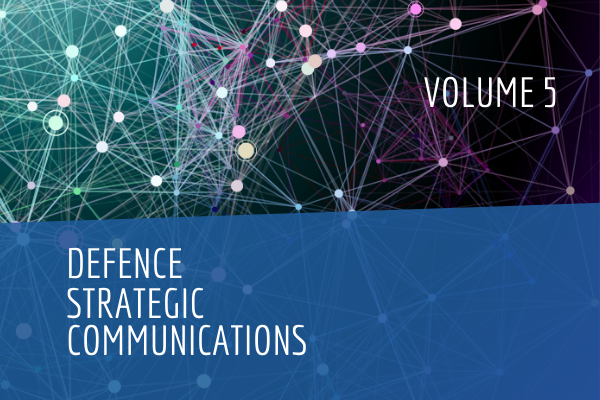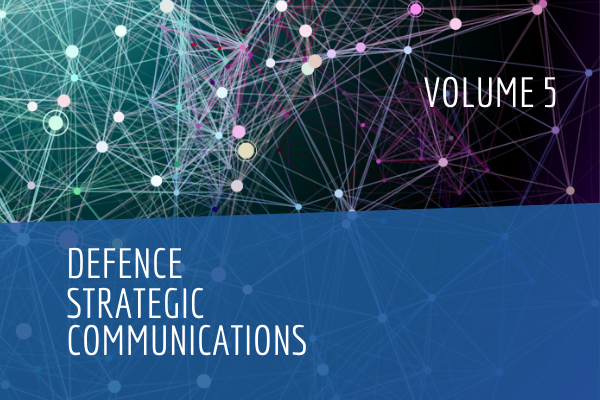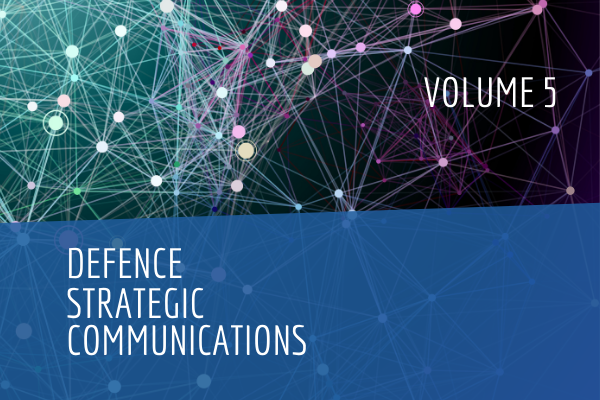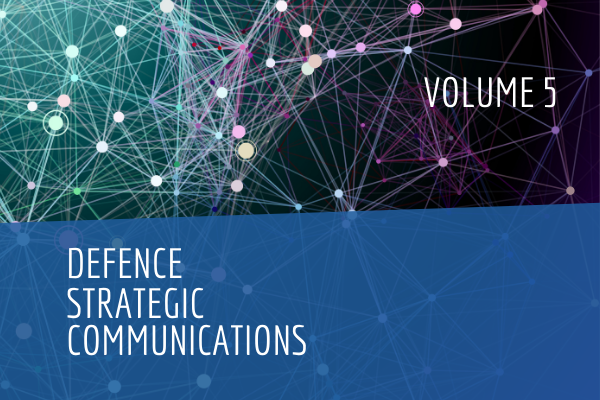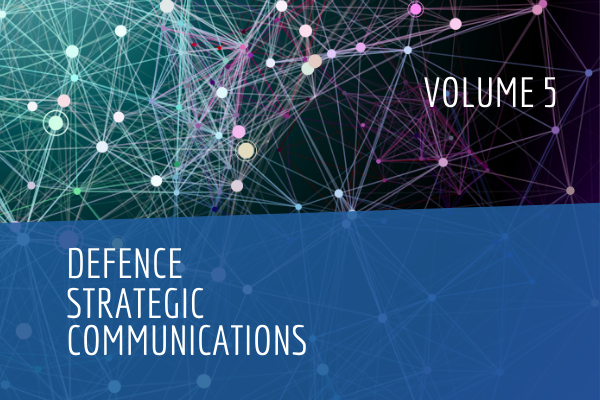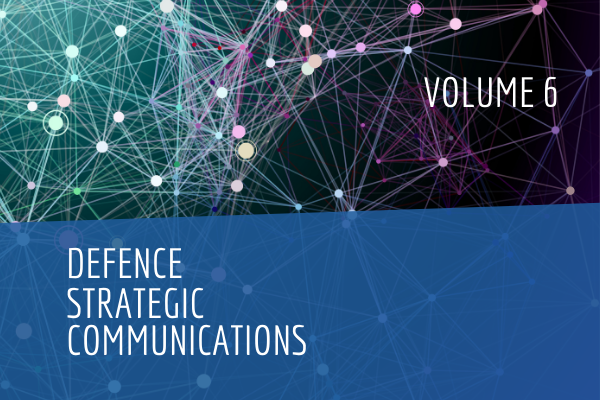Abstract
This article draws on content and sentiment analysis of a sample of international English-language media reports to identify the core elements of the Democratic People’s Republic of Korea (DPRK) strategic communications campaign conducted at the PyeongChang Winter Olympics, and to establish groundwork for an assessment of its effectiveness. Using the Olympics as a stage for strategic communications is as old as the games themselves. The article examines the structure and elements of a DPRK Strategic Communications campaign by locating it in historical and theoretical context, and shows how it bears the hallmarks of a carefully crafted and timed agenda-setting campaign. Subsequent to the games, the supreme leader of the DPRK, Kim Jong-un, met with President Moon Jae-in of South Korea, to discuss a full peace treaty and, in June 2018, met with President Trump of the United States. Irrespective of the ultimate outcome of these engagements, a month before the games such a meeting would have been inconceivable. We contend that the 2018 Winter Olympics held in the Republic of Korea (ROK) provides a case study for assessing how influencing discourses in the media space may impact the conditions of possibility for international political action.
Keywords PyeongChang Winter Olympics, Kim Jong-un, Moon Jae-in, Donald Trump, North Korea, South Korea, China, strategic communications
About the Authors
Dr Nicholas Michelsen is Senior Lecturer in the Department of War Studies, King’s College London. He is Director of the BA International Relations Programme, and Director of Research in the King’s Centre for Strategic Communications.
Dr Jonathan Woodier is Global Head of Employee Communications at a UK-listed global financial company IPF PLC and the Primary Investigator on a research project funded by the National Research Foundation of Korea, ‘The Internet of Other People’s Things: Dealing with the pathologies of a digital world’.
Bibliography
Adalian, Josefs, ‘Why NBC shouldn’t worry about Winter Olympic TV ratings’, Vulture.com, 13 February 2018.
Berg, Brennan K., et al. ‘A realist perspective of sport and international relations: US governmental perceptions of Olympic boycott movements, 1936– 2008’, The ‘Olympic and Paralympic ‘Effect on Public Policy (2016): 7.
Bolt, Neville, The violent image: Insurgent propaganda and the new revolutionaries (Columbia University Press, 2012).
Castells, Manuel, Communication Power (Oxford University Press, 2009).
Cha, Victor, ‘Role of Sport in International Relations: National Rebirth and Renewal’, Asian Economic Policy Review 11:1 (2016): 139–55.
Cha, Victor, Lewis, James, Jun, Jenny, LaFoy, Scott and Sohn, Ethan, ‘North Korea’s Cyber Operations, Strategy and Responses’, Report for CSIS Korea Chair (Centre for Strategic and International Studies, 2015).
Chen, Yu-Hua, ‘China and North Korea: Still “Lips and Teeth”’, The Diplomat (21 July 2018).
Chua, B.H. and Iwabuchi, K., East Asian Pop Culture: Analysing the Korean Wave
(Hong Kong University Press: 2008).
Cho, Ji-Hyun and Alan Bairner, ‘The sociocultural legacy of the 1988 Seoul Olympic Games’, Leisure Studies, 31:3 (2012): 271–89.
Dietram A. Scheufele and David Tewksbury, ‘Framing, Agenda Setting, and Priming: The Evolution of Three Media Effects Models’, Journal of Communication 57 (2007) 9–20 p. 18.
D’Ambrogio, Enrico, ‘European Parliamentary Research Service, North Korea’s propaganda strategy, European Parliament Briefing (October 2016).
Farwell, James P., Persuasion and power: The art of strategic communication, (Georgetown University Press, 2012).
Flew, Terry, ‘Entertainment media, cultural power, and post-globalization: The case of China’s international media expansion and the discourse of soft power’, Global Media and China, 1:4 (2016): 278–94, p. 278.
George, Steve and Tae-hoon Lee, ‘South Korean leader welcomes North Korean Olympic participation’, CNN.com, 2 January 2018.
Grix, Jonathan, ‘Sport politics and the Olympics’, Political Studies Review 11.1 (2013): 15–25.
Grohmann, Karolos, ‘Global broadcasters’ output up by 14 percent from Sochi: IOC’, Reuters, 20 February 2018.
Haas, Benjamin, ‘Pence skips Olympics dinner in snub to North Korean officials’, Guardian, 9 February 2018.
Harris, Bryan and Katrina Manson, ‘Seoul seeks to ease US concerns about Korean détente’, FT.com, 12 February 2018.
Harrison, Selig S. Korean Endgame: A Strategy for Reunification and U.S. Disengagement (Princeton University Press, 2002).
Hancocks, Paula and James Griffiths, ‘South Korea’s sunshine man: can Moon Jae-in fix the North Korea crisis?’, CNN.com, 20 January 2018.
Hayes, Graeme and John Karamichas, (eds.) Olympic Games, Mega-events and Civil Societies. Globalisation, Environment, Resistance (Palgrave, 2012): 12.
Jung, Min-kyung, ‘Cash-strapped North Korea turning more to cryptocurrecy’, The Korea Herald, 19 December 2017.
Jung, H. Pak, ‘Regime Insecurity or Regime Resilience? North Korea’s Grand Strategy in the Context of Nuclear and Missile Development’, Brookings Institute, February 2018.
Jung Min-hee, ‘South Korea’s Hallyu Content Exports Reached US$2.82 Billion Last Year’, Business Korea, 11 April 2016.
Kahneman, Daniel, Thinking Fast and Slow (Penguin, 2012 edition).
Kim, Samuel S., ‘US-China competition over nuclear North Korea’, Insight Turkey 19.3 (2017): 121–38.
Kim, Myong-song, ‘Kim Jong-un’s Sister Returns to Hero’s Welcome in Pyongyang’, The Chosunilbo, 13 February 2018.
Kim, So-young, ‘At Games reception, a hopeful dessert and a hasty exit’, Reuters, 9 February 2018.
Kwon, K. Hazel and H. Raghav Roa, ‘Cyber-rumour sharing under a homeland security threat in the context of government Internet surveillance: The case of South-North Korea conflict’, Government Information Quarterly, 34: 2 (2015): 307–16.
Kim, Christine and Hyon-hee Shin, ‘North Korean closing delegation includes man blamed for deadly sinking’, Reuters, 22 February 2018.
Lankov, Andrei, ‘Changing North Korea: An information campaign can beat the regime’, Foreign Affairs 88:6 (2009): 95–105.
Little, Charles, ‘The Sports Boycott against Rhodesia reconsidered’, in Paul Gilchrist and Russell Holden (eds), The Politics of Sport: Community, Mobility, Identity (Routledge, 2012).
Lee, Philip and Steven Denney, ‘South Korea’s Identity Gap: Diverging Views on North Korea’, Sinonk.com, 23 January 2017.
Lee, Emma, ‘China is watching the Olympics with Internet companies instead of state TV’, Technode.com, 9 August 2018.
Luciano, Michael, ‘Olympic opening ceremony drone show cancelled last minute’, ECNMag.com, 12 February 2018.
Martyn, Williams, ‘Olympics notes: No coverage yet on KCTV’, North Korea Tech, 12 February 2018.
McFate, Montgomery, ‘Manipulating the architecture of cultural control: A conceptual model for Strategic Influence Operations in North Korea’, Journal of Information Warfare, Volume 4:1 (2005) p. 22.
Michelsen, Nicholas and Frost, Mervyn, ‘Strategic Communications in International Relations: Practical Traps and Ethical Puzzles’, NATO Defence Strategic Communications 2 (2017): 9–33.
Mozur, Paul, and Choe, Sang-hun (2017) ‘North Korea’s Rising Ambition Seen in Bid to Breach Global Banks’, New York Times, 25 March 2017.
Motoko, Rich, ‘Olympics Open With Koreas Marching Together, Offering Hope for Peace’, New York Times, 9 February 2018.
Miskimmon, Alister, Ben O’Loughlin, and Laura Roselle, Strategic Narratives: Communication power and the new world order, Vol. 3 (Routledge, 2014).
Nye, Joseph S., Soft power: The means to success in world politics (Public Affairs, 2004).
Nye, Joseph and Youna Kim, ‘Soft power and the Korean Wave’ in Youna Kim (ed.) The Korean wave: Korean media go global (Routledge, 2013): 31.
Parc, J. and Moon, H.C. Korean dramas and films: key factors for their international competitiveness. Asian Journal of Social Science, 41:2 (2013): 126–149.
Panagiotopoulou, Roy, ‘Nation branding and the Olympic games: New media images for Greece and China’, The International Journal of the History of Sport, 29.16 (2012): 2337–48.
Panja, Tariq, ‘Olympic Organizers Say Tickets Are Sold, but Where Are the People?’, New York Times, 15 February 2018.
Pearson, James, ‘North Korea sends winter Olympics fliers to Seoul’, Reuters, 5 February 2018.
Perez, Bien, ‘Tencent Video, iQiyi, in race to lead Chinas’ online video market’, SCMP.com, 2 October 2017.
Ripley, Will and James Griffiths, ‘North and South Korea to meet to discuss taking part in Paralympics’, CNN.com, 23 February 2018.
Salmon, Andrew, ‘A sporting host: how South Korea has continued to build on the legacy of the Seoul Olympics’, SCMP.com, 5 July 2015.
Scharkow, Michael and Marko Bachl, ‘How measurement error in content analysis and self-reported media use leads to minimal media effect findings in linkage analyses: A simulation study’, Political Communication 34.3 (2017): 323–43.
Seo, Hyunjin, ‘International media coverage of North Korea: study of journalists and news reports on the six-party nuclear talks’, Asian Journal of Communication, 19:1 (2009): 1–17.
Spaaij, Ramon, ‘Olympic rings of peace? The Olympic movement, peace-making and intercultural understanding’ in Spaaij, Ramón, and Burleson, Cindy (eds) The Olympic movement and the sport of peacemaking (Routledge, 2016): 1.
Stockdale, Liam, ‘More than just games: the global politics of the Olympic movement’, in Spaaij, Ramón, and Cindy Burleson (eds) The Olympic movement and the sport of peacemaking (Routledge, 2016): 83.
Takita, Makiko and Rui Abiru, ‘Moon Jae-In’s Smile Vanishes as Shinzo Abe, Mike Pence Flaunt Bond’, Sankei Shimbun, 23 February 2018.
Tanaka, Akihiko, ‘Comment on “role of sport in international relations: national rebirth and renewal”’, Asian Economic Policy Review, 11.1 (2016): 156–57.
Thae Yong-ho, ‘Testimony of Minister Thae Yong-ho’, Testimony before the House Committee on Foreign Affairs, Washington, DC, 1 November 2017.
Van Tassell, Darin and Terry, Dene A., ‘An overlooked path to peace and stability: sport, the state and the case of the Koreas’, in Spaaij, Ramón, and Burleson, Cindy (eds) The Olympic movement and the sport of peacemaking (Routledge, 2016): 56.
Woodier, Jonathan R. and Park, Sung-woo, ‘Republic of Korea: K-culture and The Next Wave of Economic Growth’, International Journal of Cultural and
Creative Industries, 5:1 (2017): 70–81.
Winsor, Morgan, ‘Olympics 2018: Opening ceremony “Peace in Motion” kicks off Pyeongchang Winter Games’, ABC News, 9 February 2018.
Work, Clint, ‘What Do Younger South Koreans Think of North Korea?’, The Diplomat, 2 February 2018
Yonhap News Agancy, ‘Over 60 pct of S. Koreans support proposed inter-Korean summit: poll’, N.K. News, 15 February 2018.
______, ‘N. Korea displays ICBMs during low-key military parade’, Korea Herald, 8 February 2018.
______, ‘N. Korea to participate in four sports at PyeongChang 2018: top organizer’, Yonhap News, 18 January 2018.
